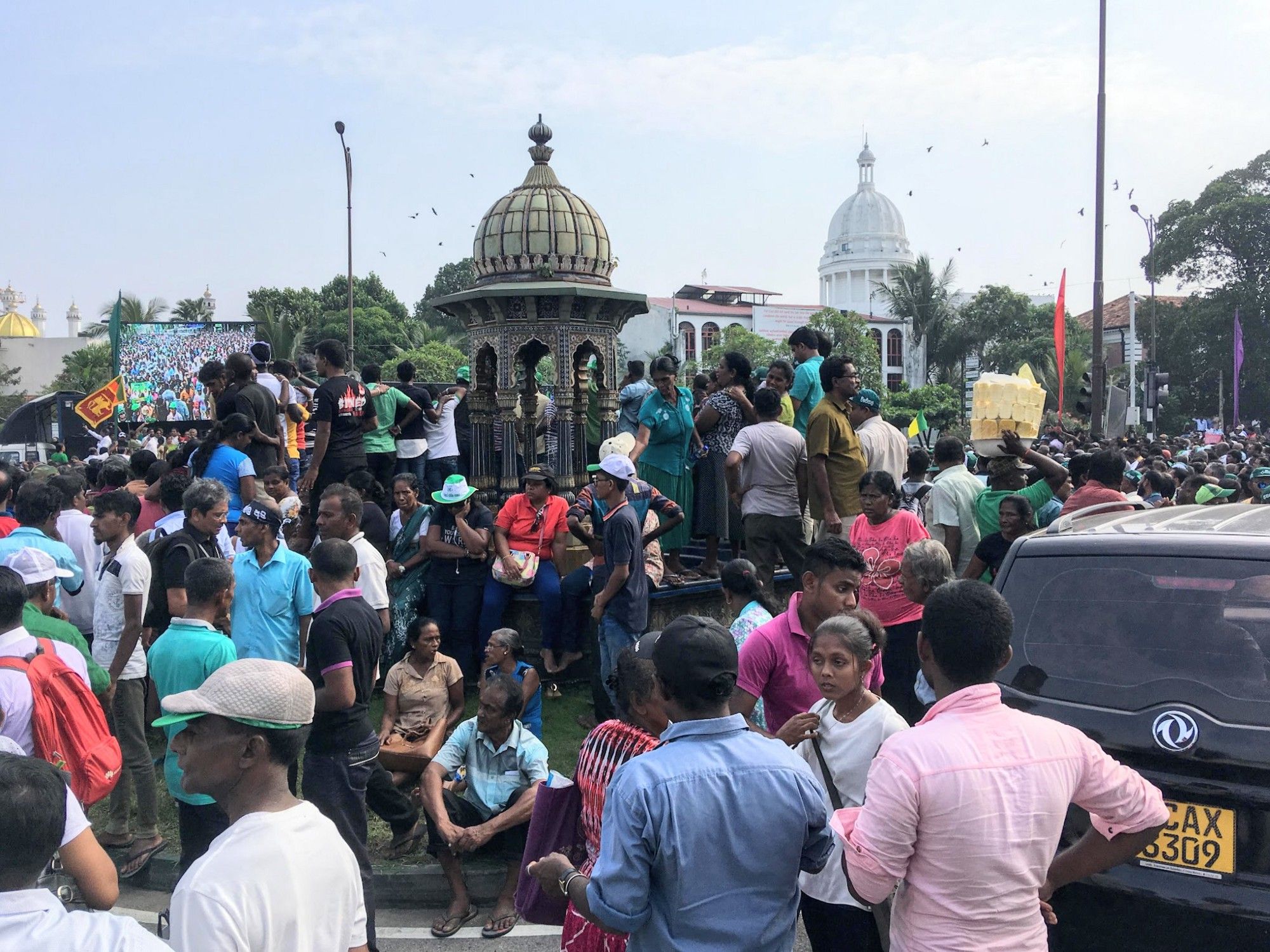Dear UK: How To Fight A Prorogue
Having lived through a prorogue, this is what I learned

Parliament is like a bad toilet. The handle is janky, you have to flush twice, the seat has been loose for years. It’s not an object you love, but shut it down for a day and you’ll suddenly miss it terribly. This is where the UK finds itself.
I’ve been there.
The Sri Lankan Parliament was prorogued on October 27th, 2018. We had to protest in the streets until it came back in November and even then there were running battles inside Parliament. We won, but this led to ongoing instability that left us open to terrorist attack the next year. A non-consensual prorogue is not a good think and I hope the UK has better luck than we did.
But please don’t tell me Sri Lanka is just the third world and there’s no connection. We’re all the third world now, aren’t we?
Here are some lessons we learned.
The first is, as the UK found out, there’s not much you can do to stop a prorogue (essentially a Parliamentary timeout). You just need a head of state to approve it and any court case will take longer than the delay. The other thing is that proroguing with protest definitely promotes rogue.
An ordinary prorogation won’t be notice let alone spelled by the general public. If you’re hearing about it, something has gone terribly wrong. In our case the Rajapaksas were buying time to bribe and threaten MPs. In the UK’s case, they’re trying to run out the clock on on Brexit. In any case, someone is trying to steal time to do something in the dark. It is bad.
But where to go from there?
In Sri Lanka we took to the streets. When Parliament is out, that’s where power lies. Small groups, big groups, all disconnected, but all out there. We also took to social media, because the mainstream media (especially TV) had been bought. But what power ultimately understands is people in the streets.
The general effect of a prorogue is that the people are no longer represented, so they have to represent themselves. Which means that you can’t be a passive citizen anymore. I, for example, had successfully quit all social media before the coup, but when it happened I felt that I had to get back on.
As a citizen you can no longer depend on your elected representatives because they’re no longer there. You have to represent.
In UK this could take the form of an energized public shoving their Parliament into action when it does come back. In Sri Lanka we had actual physical battles in Parliament which only really resolved with a Supreme Court ruling, but MPs always knew that people were out there and pissed. If we’d done nothing they would have just taken the money and supported the coup.
What Sri Lanka had that the UK doesn’t seem to is active courts. It was a court ruling that ultimately ended the thing, which I don’t see happening in the UK (please correct me if I’m wrong).
When one branch of government is out of control it takes two branches to put things back. Parliament on its own actually struggles to defend itself.
The other main lesson I learned from living through a prorogue is that, even if you do ‘win’, you now have an even more messed up toilet than before. In our case the President was instrumental to the coup and we never impeached him. Then he, through complete security negligence, got 259 people killed in the Easter Attacks. Then, even worse, he pinned the blame on Muslims and damaged the country for years and come.
Anyone proroguing your Parliament is a rogue and this is only the beginning of damage they will do. They are acting against the spirit of democracy and they will continue breaking things and people because they do not respect these delicate institutions. One thing I learned was that Parliament doesn’t actually depend on laws as much as customs. If someone is willing to disregard these customs and common decency, they will ultimately break everything.
I used to say that Sri Lanka was more stable than the UK before all of our chaos happened, and I regret my hubris. Now, globally, we’re all in some shit, and we’re all connected. Who suffers from this idiocy is the ultimately the poor and weak, so I shouldn’t have gloated.
The UK is in a bit of trouble and they must be missing their unreliable but functional toilet Parliament right now. From my experience, I’m afraid they’ll have to fight for it, to get a democratic bucket essentially. It’s not easy, and it won’t end even if you win. I wish them luck.